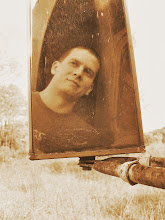It has been said that you should not doubt in the dark what God has told you in the dark. There’s nothing wrong with the saying, and I think it speaks to an important point. But, like most such sayings, I believe it is said much better with scripture. So, here it goes, “And see to it that you make them according to the pattern which was shown you on the mountain.” Exodus 25:40.
Perhaps a little context would be helpful in showing the point.
Moses has just received the Ten Commandments, many other rules, and a detailed design for the furnishings of the tabernacle. These objects were the holiest utensils ever created, and they included the ark of the covenant, the physical symbol of God’s presence on earth.
Imagine Moses, after he came down from the mountain, trying to fashion these pieces in the middle of the desert: gathering the raw materials, acquiring the necessary tools, and then completing them to God’s extravagant design. It is not hard to imagine Moses and the craftsmen becoming discouraged. They may have even questioned the point of the utensils, or why they had to be so lavish. But it was in those times when they remembered the command of the LORD, “make them according to the pattern which was shown.”
And it’s a good thing they did. They had no way of knowing it at the time, but their faithfulness was remembered thousands of years later. It was then that the writer of Hebrews quoted that fortieth verse of Exodus 25. And it was then that he revealed why it was so important. He tells us that they were for a “copy and shadow of heavenly things.” They showed the greatness of God, and foretold of His work in the future.
So let us not grow discouraged in following God’s design. All that we do is meant to be a copy and shadow of something better to come. And, if we are faithful to the pattern shown us on the mountain, people will see how great God is, even in the desert.
Monday, August 24, 2009
Friday, August 14, 2009
Taster of Death
If you have carefully followed my notes or blogs, you may have noticed that I write about death slightly more than the average person might; perhaps not always physical death, but spiritual death or the putting to death of our selves. The duality of death for the Christian fascinates me. It is a paradox. We once were dead, but if we die to ourselves we can live. And, if we crucify ourselves, we will share in Christ’s resurrection. And so, we really only know life if we die.
More thoughts of death and the Christian were aroused in my head as I was reading through the book of Hebrews. In verse nine of chapter two it says, “But we do see Him who was made a little lower than the angels, namely, Jesus because of the suffering of death crowned with glory and honor, so that by the grace of God He might taste death for everyone.” Later in the same chapter it says that, by His death, Jesus destroyed him who had the power of death and He set free those imprisoned by the fear death brings.
It’s a beautiful image. Because Christ has died, we no longer have any reason to fear death. But the part that really stood out to me was when it said that Jesus tasted death for everyone. This called to mind an image of ancient winetasters, testing the king’s drink to make sure it contained no deadly poison. I’ve often thought that a wintaster’s job would not be one I would want. But that is, in many ways, what Christ became for us. I like to imagine Christ tasting death and then handing it to us as if to say, “This is fine. It won’t kill you.” Indeed, death no longer has any sting. Christ tasted it, He destroyed its power, and it’s a safe cup for us to drink.
More thoughts of death and the Christian were aroused in my head as I was reading through the book of Hebrews. In verse nine of chapter two it says, “But we do see Him who was made a little lower than the angels, namely, Jesus because of the suffering of death crowned with glory and honor, so that by the grace of God He might taste death for everyone.” Later in the same chapter it says that, by His death, Jesus destroyed him who had the power of death and He set free those imprisoned by the fear death brings.
It’s a beautiful image. Because Christ has died, we no longer have any reason to fear death. But the part that really stood out to me was when it said that Jesus tasted death for everyone. This called to mind an image of ancient winetasters, testing the king’s drink to make sure it contained no deadly poison. I’ve often thought that a wintaster’s job would not be one I would want. But that is, in many ways, what Christ became for us. I like to imagine Christ tasting death and then handing it to us as if to say, “This is fine. It won’t kill you.” Indeed, death no longer has any sting. Christ tasted it, He destroyed its power, and it’s a safe cup for us to drink.
Subscribe to:
Comments (Atom)
